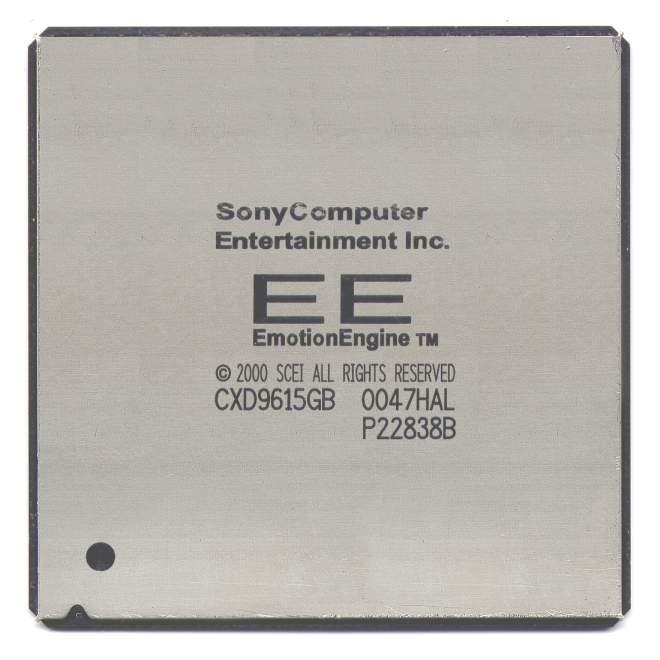Saturday Soapbox: Voting with your wallets isn't the whole answer to abusive micro-transactions
Cliff Bleszinski makes a reasonable point, but there's more to it.
Do you read Cliff Bleszinski's blog? You should! It's really smart and interesting, which isn't much of a surprise from a guy who spent 20 years making games like Unreal and Gears of War - deceptively brainy action titles full of bright and influential ideas. (I still can't believe no one's ripped off Active Reload.)
This week Bleszinski weighed into the debate around the perceived misuse of micro-transactions by companies like Electronic Arts. He argued that we shouldn't be surprised game publishers are trying to make money first and foremost, and that the main difference between corporations like EA and Valve is that Valve is "way better at their image control".
The cost of making games is higher than ever, he noted, and shareholders need to be satisfied, while many of the things gamers intensely dislike about the application of micro-transactions aren't aimed at us anyway. They're for - if I'm reading between the lines of his comment on Madden and GTA consumers correctly - dipshits.
Bleszinski's conclusion is a familiar one: Don't like it? Don't buy it.
That's fair enough, but I think he makes a few mistakes in the run-up, and I don't think it's the whole answer either.
For a start, companies can't use shareholders as an excuse for doing things that upset their customers. Getting shareholders to understand decisions that restrain short-term performance, perhaps to protect a company's public image or provide long-term benefits, is what all those directors, board members and publicity men exist to do. It's part of the job. You live with it or you figure out a way to go private so you can do what you want in peace - like Valve does, for better or worse.
Whether public or private, companies like EA and Valve still get to choose how they behave, and the problem in EA's case is that games like Real Racing 3 either demonstrate contempt for the values of EA's traditional audience or a complete ignorance of them. Which is why, when you hitch them to foolish public comments by EA's CFO about how we all love micro-transactions, everyone gets pissed off.

It also feels wrong to say that the difference between EA and Valve is just nurtured public perception. After all, at a basic level one is a company that seems to have lost its way creatively and the other is a company that knows exactly what it wants to do.
In EA's case, think back to 2008 - 18 months into John Riccitiello's reign as CEO, the publisher was actually growing in popularity, investing in original games like Mirror's Edge, Dead Space, Mass Effect and Dragon Age. We were pretty much on board with all of that. Then things started to change. Soon we were introduced to Project Ten Dollar, which later became Online Pass and, to some extent, Day-One DLC. Then there was the Star Wars MMO disaster and the departure of BioWare's founders.
We've had a lot of good EA games since then - I still play FIFA 13 pretty much every day, to name just one, and I know a lot of people who play Ultimate Team and have no problem with its take on micro-transactions - but there does seem to have been a gradual erosion of the creativity we saw in 2007/2008.
I can find plenty of fault in Valve's approach too - I'm fundamentally not a fan of the frictionless, almost antiseptic design we see in games like Portal 2, as much as I love them for other reasons - but at least there's a philosophy behind it that goes beyond just making sure all the graphs go up.
Listen to Gabe Newell talk about the future of Steam, for example, where he argues that the notion of a global gatekeeper for stores is a pre-internet way of thinking about distribution, and that the future may be that stores themselves are thought of as user-generated content. This will be a shame for EA, whose Origin vision is, well, Steam as it now stands.
Overall, though, the problem I have with simply telling people to vote with their wallets on contentious issues like the misuse of micro-transactions is that it localises the problem in the wrong place. It's true that a lot of the friction is most obvious at the point where the customer is asked to part with their money, but the reason these situations exist in the first place is light-years away from Steam, Xbox Live or wherever else the transactions might take place.
I blame the platform holders, to a large extent - especially the console makers. It all goes back to why I found the PlayStation 4 announcement a bit disappointing. Sony and Microsoft's new systems may have their fair share of innovations, but when those innovations are confined to things like business models, sharing options and horsepower, that's the only place where corporations like Electronic Arts can concentrate their own new ideas. Perhaps, if PlayStation 4 and the new Xbox were designed with a philosophy that originated in furthering game design, that's where EA would focus instead.

It all makes me pine for the old visionaries like Ken Kutaragi. Listen to this, from an interview he gave back in April 2001.
"I think there are designer types and artist types to engineers. Artist-type engineers can draw a picture on a white canvas. In some cases, the artist type might not be understood by anybody for decades because they are in pursuit of truth. On the other hand, the designer type must be understood by everybody. They must understand the era in which they live and manufacture things that meet the needs of the times. They ponder what is the best way to use the products comfortably. For me, much of my enjoyment goes to drawing pictures on a stark white canvas."
Those words are nearly 12 years old, but he might as well be describing two different eras of video game platform holders: the artist type of his day, where the goal was to change the world, and the designer type of today, where the goal is to give people what they think they want.
Kutaragi didn't always get it right, but concepts like the Emotion Engine and Cell processor were designed not just to change how gaming hardware worked, but also how developers used it. With no obvious creative philosophy behind their construction, the new consoles are less likely to provide that kind of inspiration. Developers and publishers with their own creative visions will still be able to put them to great use, but they may be the minority compared to, say, the majority who saw the potential in the immersive 3D worlds inspired by PlayStation 2's creative philosophy.
Anyway, you should read Bleszinski's blog. It's honest, interesting and informed, and I'm not attacking his perfectly reasonable point that you should vote with your wallets. I just wish that the abuse of new business models wasn't even a thing - and I worry about how the hell anyone's going to reverse the trend that led to it being the primary form of innovation in games in 2013. At the moment, all I can see on the horizon is a lot more of the same.





-3-31-23-screenshot.png?width=291&height=164&fit=crop&quality=80&format=jpg&auto=webp)



